"A man ought to read just as inclination leads him, for what he reads as a task will do him little good."—Samuel Johnson
| Reviews | Limericks | Six Words | Buy Nothing |
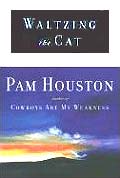 18 December 1998
18 December 1998
Waltzing the Cat
Pam Houston
Despite its unfortunate title, Houston's second story collection fulfills the promise of her first, Cowboys Are My Weakness. In this new collection the stories are linked, sharing the first-person voice of Lucy O'Rourke: landscape photographer, river guide, and perennial loser in love. The linked format tightens the book, allowing it to approach the depth of a novel as we piece together clues about Lucy's unhappy childhood. Houston's form, however, is the short story; only its spareness and restraint are right for the pictures she paints of desolate Montana plains, wild Amazon jungles, and men as stormy and inscrutable as nature itself.
 14 December 1998
14 December 1998
The Tennis Partner
Abraham Verghese
On the tennis court Verghese is the student, learning the game from former pro David Smith. In the hospital he is the teacher, supervising David's medical residency. As Verghese's marriage unravels and work and tennis become his whole life, he begins to rely on David's friendship as well as their twice-weekly matches. But David has a secret life: A drug addiction, supposedly overcome, is resurfacing to threaten his relationships, his career, and, eventually, his life. Verghese is at his best as a medical writer, paying loving attention to the human body, drawing metaphor from disease but never losing sight of the patient as a person. He turns his careful eye to tennis as well, and to the not-so-uncommon phenomenon of doctor-as-drug addict. The story of the author's struggle to maintain his friendship with David, and his bewilderment as he uncovers deeper and deeper layers of deception and self-destruction, make this book a page-turner.
More from Verghese: My Own Country
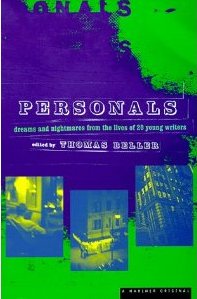 23 September 1998
23 September 1998
Personals: Dreams and Nightmares from the Lives of 20 Young Writers
Thomas Beller, editor
This collection of personal essays by writers in their twenties and early thirties is heavily weighted toward New Yorkers, but still spans a variety of experiences and viewpoints. There is the tale of a captivating e-mail courtship and its rocky transition to the real world; the struggle of a Vietnamese immigrant family trying to make it in rural Pennsylvania; and the study of a boyhood spent learning the art of tall-tale telling in a tiny Mormon Arizona town. The personal essay is the latest fashion in literature, with a fairly unrestricted form and with contents drawn directly from the author's life. It is well suited to recounting the fumblings and wrong turns of one's twenties: the grappling with big questions of career, religion, marriage, and children as personal identity begins to crystallize. Many of these pieces read like diary entries from a time you're glad to have experienced but wouldn't want to live through again, like living in New York City at the age of 21 with no furniture, subsisting on Chinese takeout and Tasti D-Lite. The best pieces are not necessarily written by the writers with the most interesting lives, but by those talented enough to know when to sacrifice truth for the sake of the story. “Despite my best efforts,” says Brady Udall in the most entertaining piece in the collection, “this memoir, like all memoirs, is chock full of lies. It's better that way, take my word for it.”
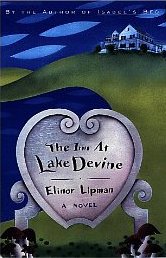 7 August 1998
7 August 1998
The Inn at Lake Devine
Elinor Lipman
In 1962, the Marx family sends an inquiry to a summer resort and receives a polite but firm response: Gentiles Only. Twelve-year-old Natalie has found her mission. Fascinated and incensed, she sets out to educate, and eventually infiltrate, the Vermont inn that refused her. Her passion carries over into adulthood, when circumstances entwine her fate with that of the family that runs the inn. With an ear for sparkling dialogue and a taste for fine food, Lipman has accomplished the unlikely feat of writing a charming romantic comedy about anti-Semitism.
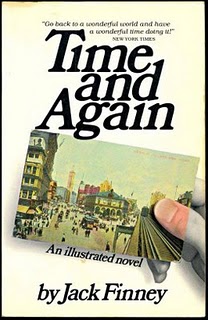 2 August 1998
2 August 1998
Time and Again
Jack Finney
The gold standard for time travel novels: masterfully plotted, lovingly detailed, and impossible to put down. A man in 1970s Manhattan becomes involved in a mysterious government project and finds himself transported to the 1880s—an era he comes to like much better than his own. It's even better if you're familiar with New York City, but that's not required. Sure, Finney's attitude toward women is the biggest anachronism in the book, but that's easy to overlook. The sequel, From Time to Time, is a disappointment, but his collection of stories, About Time, is as magical as the novel.
More time travel: Kindred, The Time Traveler's Wife
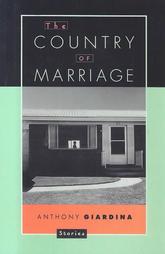 1 July 1998
1 July 1998
The Country of Marriage: stories
Anthony Giardina
This collection of short stories is about men. They have families and careers, yet despite the outward trappings of success, a central satisfaction somehow eludes them. These are men who are susceptible to a certain moment in the afternoon when the light “is like the emptying out of drawers” and the fundamental loneliness of life cannot be avoided. Each maintains distance from the woman in his life; one turns from his wife to seek affection from a woman he doesn't care for, only to find that when he's with her he imagines his wife. Another finds love and comfort only with his infant daughter, and in a twist that is much more than a simple reversal of gender roles, stays with and pleases his wife, who is preoccupied with work and an affair, in order to be with the child. Giardina himself doesn't quite get women, as is clear from the one story in the book that has a female narrator, but the decision to let real happiness slip by, rather than risk losing the small comforts of a “settled-for” life, is something that casts a late afternoon shadow over the hearts of women and men alike.
Giardina's novel: White Guys
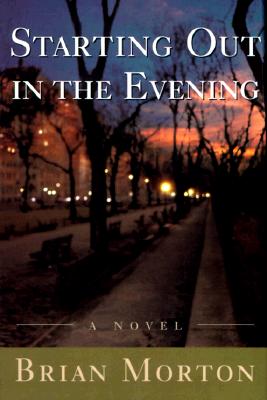 4 June 1998
4 June 1998
Starting Out in the Evening
Brian Morton
Morton's first novel, The Dylanist, is a favorite of mine, and I'm delighted to report that his second novel surpassed my high expectations. The story of an out-of-print novelist nearing the end of his life and the ambitious young woman who comes to write about him again turns on the basic question of how to live, this time asking, “What happens if you've devoted your life to making art, but that art is only second-rate?” Interwoven is the struggle of the novelist's daughter, faced at mid-life with having to give up her dream of a baby for her dream of true love. Morton captures the painful reality of human frailty, both physical and spiritual, and navigates the subtle dissolution of relationships in language that at times achieves an otherworldly beauty.
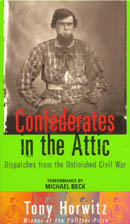 15 April 1998
15 April 1998
Confederates in the Attic: Dispatches From the Unfinished Civil War
Tony Horwitz
The Civil War may have ended more than a century ago, but in parts of the South, time stands still. Rekindling a boyhood obsession with the conflict, Horwitz enters with world of Civil War re-enactors, for whom the word “obsession” is too mild. His account of their hardcore quest for authenticity is lively and amusing, but he soon uncovers a more complex picture of the South and the war. The defeat is still felt keenly, and the battle to preserve Southern culture and resist Federal control is still being fought. The Civil War was not only about slavery, yet it is the Confederate flag that acts as a match, igniting the powder keg of tension between blacks and whites in the region. Horwitz travels from battlefields to bars, from downtown Atlanta to rural Alabama, and talks to just about everyone he encounters. He discovers some glaring historical inaccuracies in what is considered common knowledge of Civil War history. And all along, Horwitz is troubled by the contrast between his egalitarian values and the appeal of the Confederate rebellion. The book contains few answers, but it illuminates an era that has a unique hold on the American imagination.
 23 March 1998
23 March 1998
John Stuart Mill in Love
Josephine Kamm
I caught a terrible cold and was home on the couch for three days, drinking hot water with lemon and dreaming about being able to breathe through my nose again. Thanks to this book, it's a fond memory. John Stuart Mill and Harriet Taylor were a remarkable pair. Their long, probably platonic, yet romantic and intensely intellectual relationship profoundly affected Mill's work, particularly his views of women, which were quite progressive for the mid-nineteenth century. He eventually married Harriet after her husband died, only to lose her to tuberculosis. This is a dignified and unassuming work of scholarship as well as a captivating story.
More love and history: Passionate Minds
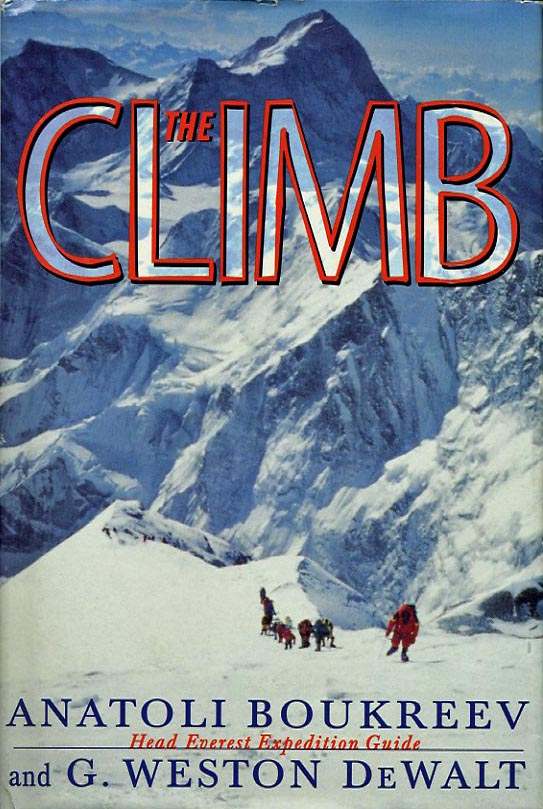 10 February 1998
10 February 1998
The Climb: Tragic Ambitions on Everest
Anatoli Boukreev and G. Weston DeWalt
This is the story of the fatal Mount Everest expedition of May of 1996, told based on the recollections of Boukreev, the Russian guide for the American “Mountain Madness” team. Boukreev was portrayed in Jon Krakauer's Into Thin Air as highly competent but callous, and hearing the same story from Boukreev's perspective gives one a broader view of a still confusing and sad event. While The Climb lacks Krakauer's fluid prose (actually less evident in Into Thin Air than in his earlier work), it provides more background and details and incorporates many more voices of people involved in all aspects of the expedition. Boukreev, who risked his own life to save several others, yet makes no attempt to rationalize or moralize about the tragedy, had no romantic illusions about his life's work. He died in an avalanche at age 39 in December of 1997.
More outdoor adventure: The Wild Trees
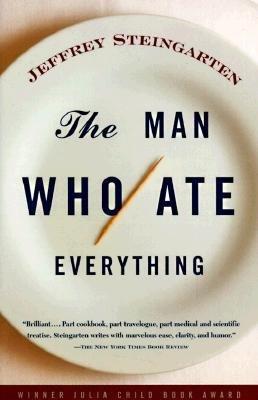 18 January 1998
18 January 1998
The Man Who Ate Everything
Jeffrey Steingarten
This collection of essays by the Vogue food critic is funny, educational, and highly skimmable. But don't miss his chapter on Olestra, which he bravely defends. Steingarten is an unrepentant omnivore and impervious to dogma of any sort; he scorns fad diets, thinks food allergies are a bunch of hooey, scours France looking for the best sauerkraut, and spends several days figuring out how to eat well on a food stamp budget. Food is for everybody, and so is this book.
More on food: Inconspicuous Consumption
"There was so much to read, for one thing, and so much fine health to be pulled down out of the young breathgiving air...I was rather literary in college—one year I wrote a series of very solemn and obvious editorials for the Yale News—and now I was going to bring back all such things into my life and become again that most limited of all specialists, the 'well-rounded man.' This isn't just an epigram—life is much more successfully looked at from a single window, after all."—F. Scott Fitzgerald, The Great Gatsby
Copyright © 1996–2026 So Much to Read
Contact: books at so much to read dot com